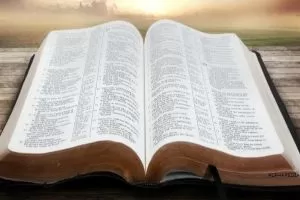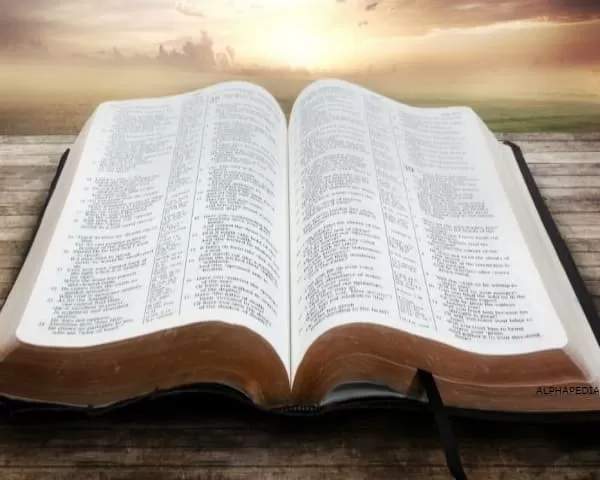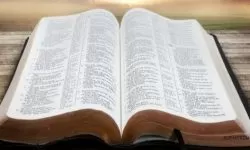Lamentations 1. As the Bible says:
The miserable state of Jerusalem, the just consequences of their sins. (1-11) Jerusalem depicted as a woman in captivity, lamenting and seeking God’s mercy. (12-22). The book opens with the image of a lonely city. Her name (the Poet imagines her mainly as a woman) is Zion, but modern people would probably call her Jerusalem.
Why is she so distressed? Well, in the past, this city used to be the queen bee in these parts, it was super important. The wife of God. A princess and ruler. But now it has been invaded by an unidentified enemy (although we Bible scholars know it is Babylon) and its fortunes have seriously worsened.
Her city is deserted and turned into rubble. She is a widow. And she is under the thumb of a foreign king. Needless to say, all this has her quite depressed. She spends most of her time crying. No one can help her out of this funk. Her lovers are not much use and her friends have turned against her.
The Babylonians have also expelled many people in the Kingdom of Judah (the state she called home). They have been forced into exile in Babylon. No one can come to Zion for holidays or religious rituals anymore. The temple is destroyed. Gone. Instead, her enemies are in charge and mock her in the streets.
Why did all this happen? Well, it was a kind of work of God. Because people in Zion were so sinful and disobedient, God allowed the Babylonians to take the city. All of the children of Zion have been taken prisoner. She has totally lost her luster and her kings have no kingdom and are weak. And her enemies continue to gloat over her victory.
Though she knows she has done wrong, Zion cries out to God in agony. (Are you there God? It is I, Zion). She wants him to see what happened to her. Babylonians have completely destroyed the city. They have even invaded the Temple (a place where the pagans were definitely not welcome). People of Sion are starving. It is a pathetic image.
And God allowed all this to happen. He was angry, so he set a fire that burned her to the bone. He basically handed over the victory to the Babylonians. When the warriors of Zion were fighting, he didn’t even lift a finger to help them.
He just trampled on Zion like she was a grape that was turning into wine. God may have allowed all this to happen, but Zion does not blame him for it. “The Lord is right,” she says. He usually is, that’s one of the advantages of being God.
Of course, that doesn’t make her any less miserable. She cries a little more and cries for her children. Some are in exile and others have been killed. Babylonians are very excited that God has turned against His chosen people.
Throughout the poem, Zion cries out to God in misery, but never asks Him for anything. Now she has a request. She tells God to also give the Babylonians a taste of His justice. They are sinful people, who do not even believe in him. They totally deserve it. All in good time, Zion. All in good time.
Commentary on Lamentations 1: 1-11
The prophet sometimes speaks in his own person; at other times, it is Jerusalem, as a woman in distress, who speaks, or some of the Jews. The description shows the miseries of the Jewish nation. Jerusalem became a captive and a slave, because of the greatness of her sins; and she did not rest from suffering.
If we allow sin, our greatest adversary, to have dominion over us, it is precisely because it has dominion that other enemies will also suffer. People endured the extremes of hunger and anguish.
In this sad condition, Jerusalem recognized her sin and pleaded with the Lord to consider her case. This is the only way to ease us under our burdens; for it is the righteous wrath of the Lord for man’s transgressions that have filled the earth with sorrow, mourning, sickness, and death.
Commentary on Lamentations 1: 12-22
Jerusalem, sitting dejectedly on the ground, calls on those who passed by to consider whether their example was not troubling them. Her outward sufferings were great, but her inward sufferings were more difficult to bear, through guilt.
Pain for sin must be a great pain and must affect the soul. Here we see the evil of sin, and we can warn against fleeing from the coming wrath. Whatever can be learned from the sufferings of Jerusalem, much more can be learned from the sufferings of Christ.
Doesn’t he speak from the cross to each of us? Doesn’t he say, it is nothing to you, all of you who pass by? May all our sorrows lead us to the cross of Christ, may they lead us to mark his example and may we joyfully follow him.
Related Topics
Other Topics of Interest in ALPHAPEDIA

FREE BACHELOR DEGREE IN CRIMINAL JUSTICE

KHAKI COLOR: Types, Psychology and Meaning

FREE DIVING COURSE

💚 WHAT IS NEUTRAL IN ELECTRICITY ?

FREE ELECTRICAL SAFETY COURSE

HOW A DIGITAL SCALE WORKS ?
Image of the Bible




